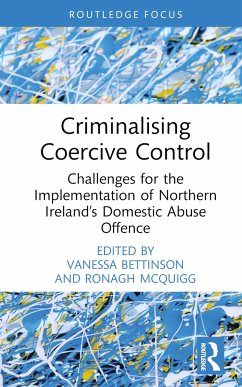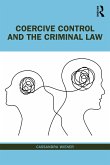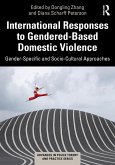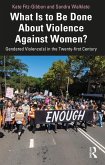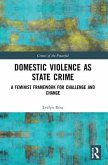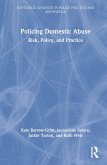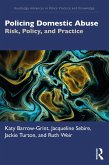Drawing on experiences from other jurisdictions within the UK, Criminalising Coercive Control explores the challenges and potential successes which may be faced in implementing Northern Ireland's new domestic abuse offence.
A specific offence of domestic abuse was introduced in Northern Ireland in March 2021. This represents a crucial development in Northern Ireland's response to domestic abuse. The new legislation has the effect of criminalising coercive and controlling behaviour, thereby bringing Northern Ireland into line with other jurisdictions within the UK, and also with relevant human rights standards in this regard. The book begins with a discussion regarding the offence itself and the underpinning domestic abuse policy in Northern Ireland. Subsequent chapters explore further measures which may be needed to respond effectively to domestic abuse in Northern Ireland, by drawing upon the experiences of other jurisdictions of criminalising coercive control. These reflections are considered through the lenses of policing, prosecutorial practice and frontline domestic abuse working.
Criminalising Coercive Control will be of great interest to students and scholars in a variety of fields, such as criminal law, criminology, social policy, human rights, family law, gender studies and sociology. The book is also accessible beyond academia, including practitioners and those in the voluntary sector who are working in the area of combating domestic abuse.
A specific offence of domestic abuse was introduced in Northern Ireland in March 2021. This represents a crucial development in Northern Ireland's response to domestic abuse. The new legislation has the effect of criminalising coercive and controlling behaviour, thereby bringing Northern Ireland into line with other jurisdictions within the UK, and also with relevant human rights standards in this regard. The book begins with a discussion regarding the offence itself and the underpinning domestic abuse policy in Northern Ireland. Subsequent chapters explore further measures which may be needed to respond effectively to domestic abuse in Northern Ireland, by drawing upon the experiences of other jurisdictions of criminalising coercive control. These reflections are considered through the lenses of policing, prosecutorial practice and frontline domestic abuse working.
Criminalising Coercive Control will be of great interest to students and scholars in a variety of fields, such as criminal law, criminology, social policy, human rights, family law, gender studies and sociology. The book is also accessible beyond academia, including practitioners and those in the voluntary sector who are working in the area of combating domestic abuse.

